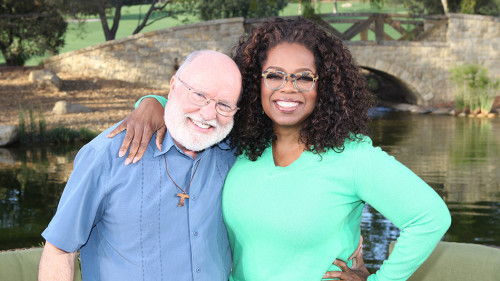I delivered this as part of the sermon at church today. It borrows heavily from a passage in Paul Zahl’s ‘Who Will Deliver Us?’. Here in the increasingly post-Christian west, in the popular consciousness today, the idea of sin carries very little weight. I think sometimes, perhaps even often, it is going to be more effective and arresting to speak of the crushing weight of stress, expectations, and performance-ism than the crushing weight of the righteous law. In the end, they are two sides of the same coin and our rebellion against either can rightly be called “justification by works”. I don’t mean to downplay the importance of sin, but when speaking about it directly is going to largely result in miscommunication, than we need to be able to also proclaim news to people that is more immediately recognizable as good. This is one possible angle to take.
—
Let’s start by considering some of the everyday problems of living. Let’s consider the problem of stress. Talk to any parent of small children, any college student, any one working two jobs or even one job or caring for an elderly parent, any person trying to make it in any business, heck, any person living in the USA today and you will hear about stress. But what is stress anyway? Stress is pressure caused by the convergence of strong and conflicting claims upon the self. If for example, we feel pressure to perform at peak efficiency at work, and to be an attentive partner to our spouses and an engaged parent to our children, we will most certainly experience stress. How can we balance the strong conflicting claims upon our time and energy? Add to this the desire to have time for our own interests or hobbies, or just things that we think are interesting or cool, and we will have a very hard time reconciling the demands. This type of stress is familiar to many of us.
And it’s much worse in a time like our own when what we’ll call the “law of capability” is in force. This is the law that judges us wanting if we are not capable, if we can’t handle it ALL, if we are not competent to balance our diverse commitments without a slip. We have to be good at ALL THE THINGS or we are judged to be losers. We are filled with dread that we won’t be able to keep all the plates spinning.
Back in the 80s, Pulitzer winner Ellen Goodman gave a commencement speech where she described the ideal model woman of today something like this. She gets up at six-thirty in the morning and jogs five miles. At seven-thirty she cooks a totally nourishing breakfast for her husband and two beautiful children. By eight-thirty the children have left for school, her husband to his office, and she is on the way to her incredibly demanding job: she is an advertising director for a major company. All day long she attends meetings and makes important decisions. When she finally arrives home, it is quite late because she had to attend a board meeting for a community-service organization of which she is the chairman. But she does not get home too late to fix her children an excellent supper. She helps both of them with their homework and has meaningful good-nights with each. Yet she still has energy left to prepare a gourmet, candlelit supper for herself and her husband. As the day comes to an end, the model woman has a totally fulfilling yet deeply honest sexual relationship with her admirably sensitive husband.
Whew. Now we may be able to rationally look at that and say it sounds silly, but I think that most of us, most of the time, are under an unwritten pressure to perform like that.
Under the law of capability, the model woman, like any of us, is bound to sicken. We are all simply human. Stress, comes from all these different claims upon the self. Ultimately, stress involves a religious problem. The problem underlying our need to reconcile conflicting demands is this: What establishes my identity? What IS my identity? Who the heck am I? That’s very much a religious question.
Many of us act as if the answer to this question were performance – what we DO. If I can do enough of the right things, I will have established my worth. Identity is the sum of my achievements. Hence, if I can satisfy my boss, meet the needs of my spouse and children, and still do justice to my inner aspirations and dreams, then I will have proven my worth. There are infinite ways to prove our worth along these lines. The basic equation is: I am what I do. It is a religious position in life because it tries to answer in practice terms, the question, “Who am I and what is my niche in the universe?” This popular position says, my place in the universe is in proportion to my deeds.
You ready for this? In Christian theology, such a position is called “justification by works”. It assumes that my worth is measured by my performance – what I do. Conversely, it conceals a terrible and ghastly fear: If I do not perform, I will be judged unworthy. I will be worthless. To myself I will cease to exist.
What is the antidote to this deeply entrenched crushing expectation that the world squashes us with? This is the spirit of our age. It is not something we can work our way out of. It is not something we can think our way out of. It is only something that we can be rescued from by a powerful outside force that is completely independent of ourselves.
The Good News, is that God, the creator of all living things, has done this very thing, this rescuing, in the person of Jesus Christ. He died for us while we were clearly unworthy. And he has promised to deliver us from death for no good reason at all, except that he loves us dearly. That is the good news.
What I think I need is more money, more time, more energy, less sinning, but no, what I really need is Jesus – God himself.
The great Christian philosopher Soren Kirkegaard said: “And this is one of the most crucial definitions for the whole of Christianity; that the opposite of sin is not virtue but faith.” That is, the opposite of doing it wrong isn’t doing it right, it’s faith – faith in someone else to do it right. Faith in the only one who can do it right.
You may not understand what all that it entails, but today, whether you are old in the faith, or young in the faith, or on the fringe of faith, or outside of the faith. Put your trust in the Lord Jesus Christ, your savior, the eternal King.





